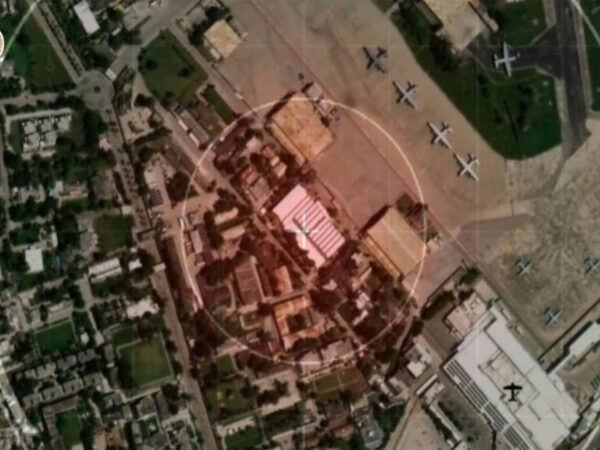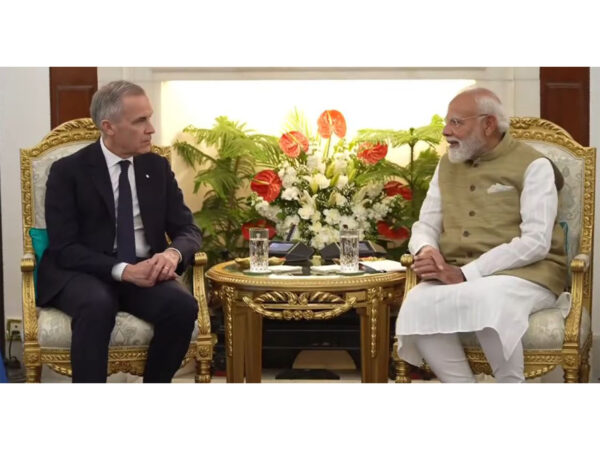
SC Upholds Abrogation Of Article 370
A five-judge Constitution bench of the Supreme Court on Monday unanimously upheld the validity of the Union government’s 2019 decision to abrogate Article 370 of the Constitution which conferred the special status of Jammu and Kashmir, while pointing out that Article 370 is a “temporary provision”.
A five-judge Constitution bench comprising Chief Justice of India DY Chandrachud, Justices Sanjay Kishan Kaul, Sanjiv Khanna, BR Gavai, and Surya Kant said, “It can be garnered from the historical context for the inclusion of Article 370 and the placement of Article 370 in Part XXI of the Constitution that it is a temporary provision.”
The apex court said Article 370 was enacted due to wartime conditions in the State and was meant to serve a transitional purpose.
“Article 370 was introduced to serve two purposes. First, the transitional purpose: to provide for an interim arrangement until the Constituent Assembly of the State was formed and could take a decision on the legislative competence of the Union on matters other than the ones stipulated in the Instrument of Accession, and ratify the Constitution; and second, a temporary purpose: an interim arrangement in view of the special circumstances because of the war conditions in the State,” the Constitution bench stated in it’s verdict.
The top court further said, “We have held that a textual reading of Article 370 also indicates that it is a temporary provision. For this purpose, we have referred to the placement of the provision in Part XXI of the Constitution which deals with temporary and transitional provisions, the marginal note of the provision which states “temporary provisions with respect to the State of Jammu and Kashmir”, and a reading of Articles 370 and 1 by which the State became an integral part of India upon the adoption of the Constitution.”
The petitioners, challenging the abrogation of Article 370, had said that Article 370 was no longer a “temporary provision” and it had assumed permanence post the dissolution of the Constituent Assembly of Jammu and Kashmir.
The five-judge bench pronounced three concurring verdicts–one by CJI DY Chandrachud for himself and Justices Gavai and Surya Kant. Justices Sanjay Kishan Kaul and Sanjiv Khanna have authored two separate concurring judgments.
The top court held that the State of Jammu and Kashmir did not retain an element of sovereignty when it joined the Union of India.
The apex court said that although Maharaja Hari Singh, the erstwhile ruler of the princely state, issued a proclamation that he would retain his sovereignty, his successor Karan Singh issued another proclamation that the Indian Constitution would prevail over all other laws in the state.
It added, “The Proclamation reflects the full and final surrender of sovereignty by Jammu and Kashmir, through its sovereign ruler, to India–to her people who are sovereign.”
Neither the constitutional setup nor any other factors indicate that the State of Jammu and Kashmir retained an element of sovereignty, it said. The Constitution of Jammu and Kashmir was only to further define the relationship between the Union of India and the State of Jammu and Kashmir, said the bench ruled.
“The State of Jammu and Kashmir became an integral part of the Union of India is evident from Articles 1 and 370 of the Indian Constitution. It is reiterated in Section 3 of the Constitution of Jammu and Kashmir, which is unamendable,” it added.
The apex court said that simply because the Constituent Assembly ceased to exist, it did not mean Article 370 would continue permanently. “The President was empowered to issue the order to abrogate Article 370,” the top court added.
“The exercise of power by the President under Article 370(1)(d) to issue Constitutional Order (CO) 272 is not mala fide. The President in exercise of power under Article 370(3), can unilaterally issue a notification that Article 370 ceases to exist. The President did not have to secure the concurrence of the government of the State or Union government acting on behalf of the State government under the second proviso to Article 370(1)(d) while applying all the provisions of the Constitution to Jammu and Kashmir because such an exercise of power has the same effect as an exercise of power under Article 370(3) for which the concurrence or collaboration with the State government was not required,” the verdict stated.
“Article 370(3) was introduced for constitutional integration and not for constitutional disintegration. Holding that 370(3) cannot be used after constituent assembly was dissolved cannot be accepted,” it added.
It upheld CO 272 issued by the President on August 5 to the extent it made provisions of the Constitution of India applicable to Jammu and Kashmir.
Further, it took into note Solicitor General Tushar Mehta’s submission that the Statehood of Jammu and Kashmir will be restored, except for the Union Territory of Ladakh.
“In view of the statement we do not find it necessary to determine whether the reorganisation of the State of Jammu and Kashmir into two Union Territories of Ladakh and Jammu and Kashmir is permissible under Article 3. However. we uphold the validity of the decision to carve out the Union Territory of Ladakh in view of Article 3(a) read with Explanation I which permits forming a Union Territory by separation of a territory from any State,” the bench added.
It directed that steps shall be taken by the Election Commission of India to conduct elections to the Legislative Assembly of Jammu and Kashmir by 30 September 2024.
Restoration of Statehood shall take place at the earliest and as soon as possible, it added. The Constitution bench was hearing a batch of petitions challenging the abrogation of Article 370 of the constitution and bifurcating the state into two Union Territories.
A number of petitions were filed in the top court including those of private individuals, lawyers, activists and politicians and political parties challenging the Jammu and Kashmir Reorganisation Act, 2019, which splits Jammu and Kashmir into two Union Territories — Jammu and Kashmir, and Ladakh.
On August 5, 2019, the Central government announced the revocation of the special status of Jammu and Kashmir granted under Article 370 and split the region into two Union territories. (ANI)
For more details visit us: https://lokmarg.com/

Afghanistan Strikes Key Military Bases In Pakistan, Including Nur Khan Airbase

Prime Minister Narendra Modi Meets Canadian Prime Minister Mark Carney

US, Arab Nations Slam Tehran’s Strikes In West Asia After US-Israel Joint Military Action On Iran
